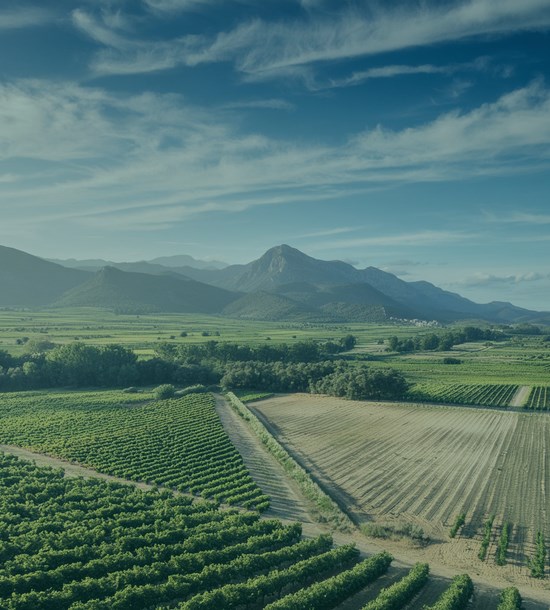The Southern macro-region of Europe, comprising Spain, Portugal, Malta, Italy, Greece, and Cyprus, holds significant potential for advancing the European Union's bioeconomy initiatives. This region, representing 25.12% of the EU's total area and 28.81% of its population, is poised to play a critical role in EU's broader bioeconomy strategy.
State of Play of the Bioeconomy in Southern Europe
Primary production and industrial use of biomass
agriculture, forestry, and fisheries are the backbone of the Southern macro-region's bioeconomy. With approximately 21.7 million hectares of arable land, agriculture is the most crucial sector. However, there has been a noticeable decline in arable land due to poor agricultural practices and increasing pressure from other sectors. Biomass production from agriculture, forestry, and fisheries is critical, but sustainable management practices are essential to prevent further degradation of these resources.
Industrial Deployment and Economic Relevance
The bioeconomy in Southern Europe is significantly driven by the industrial deployment of biomass, primarily in food and feed, bioenergy, and biomaterials sectors. Countries like Italy and Spain lead in the implementation of bioeconomy strategies, focusing on the valorisation of secondary raw materials and by-products, particularly from the agricultural sector. Italy’s bioeconomy strategy is considered exemplary within the European context.
Policy Landscape
Southern Europe's bioeconomy policies are diverse. Italy and Spain have well-defined and implemented bioeconomy strategies, while countries like Malta, Cyprus, and Greece lag behind. Spain's bioeconomy strategy, though comprehensive, faces stagnation in its application, whereas Portugal's strategy is primarily marine-focused. Effective bioeconomy development in this region hinges on collaborative and coordinated efforts across various governmental and non-governmental actors.
Challenges and Opportunities
One of the main challenges in the Southern macro-region is the lack of horizontal coordination between ministries and the involvement of stakeholders in policy-making processes. This has led to unfulfilled objectives and hindered progress. However, the region has recognised the importance of regional bioeconomy strategies, especially in Italy, Spain, and Portugal, where regional governments play a pivotal role in promoting the bioeconomy.
Applied R&D and Technology Transfer
The Southern macro-region exhibits strong commitments to applied research and development (R&D) and technology transfer. Various policy instruments and initiatives support these activities, although there are challenges related to commercialisation and demand-side policies. Enhancing awareness, accessibility, and funding adequacy for small and medium-sized enterprises (SMEs) is crucial for broader participation and impact.
Cross-sectoral Collaboration
Cross-sectoral collaboration is vital for the bioeconomy’s success in Southern Europe. The region shows significant activities from policy actors, clusters, and firms to enhance collaboration, although ongoing challenges persist. Policies supporting cross-sectoral collaboration and mapping collaborative structures are essential for driving innovation and economic growth.
SWOT Analysis and Future Directions
The SWOT analysis of the Southern macro-region highlights several strengths, such as strong agricultural sectors and innovative bioeconomy strategies in Italy and Spain. However, it also points out weaknesses like poor horizontal coordination and lack of comprehensive strategies in some countries. Opportunities include leveraging national recovery plans and mutual learning between Mediterranean and Baltic regions. Threats encompass climate change, pollution, and potential shifts in political priorities due to immigration.
Conclusion
The Southern macro-region’s bioeconomy is pivotal for the broader European bioeconomy strategy. The region's diverse agricultural base, coupled with innovative policies and strong industrial deployment, positions it well to contribute significantly to EU’s bioeconomy goals. However, addressing the challenges of policy coordination, enhancing R&D and technology transfer, and fostering cross-sectoral collaboration will be crucial. With continued support and strategic initiatives, Southern Europe can serve as a model for sustainable and resilient bioeconomy development in the EU.
Country Factsheets to be Downloaded!
Get a quick overview of the bioeconomy sector in each of the countries in the Southern macro-region, including employment, biomass production, funding opportunities, etc.
Curious to Know more about the Bioeconomy Sector in the Southern Macro-Region?
If you’re curious to know more about the bioeconomy sector in the Southern region, you can read the recently published report called ”Report on macro-regions – Mapping of initiatives, structures, instruments and key challenges for EU’s macro-regions”
